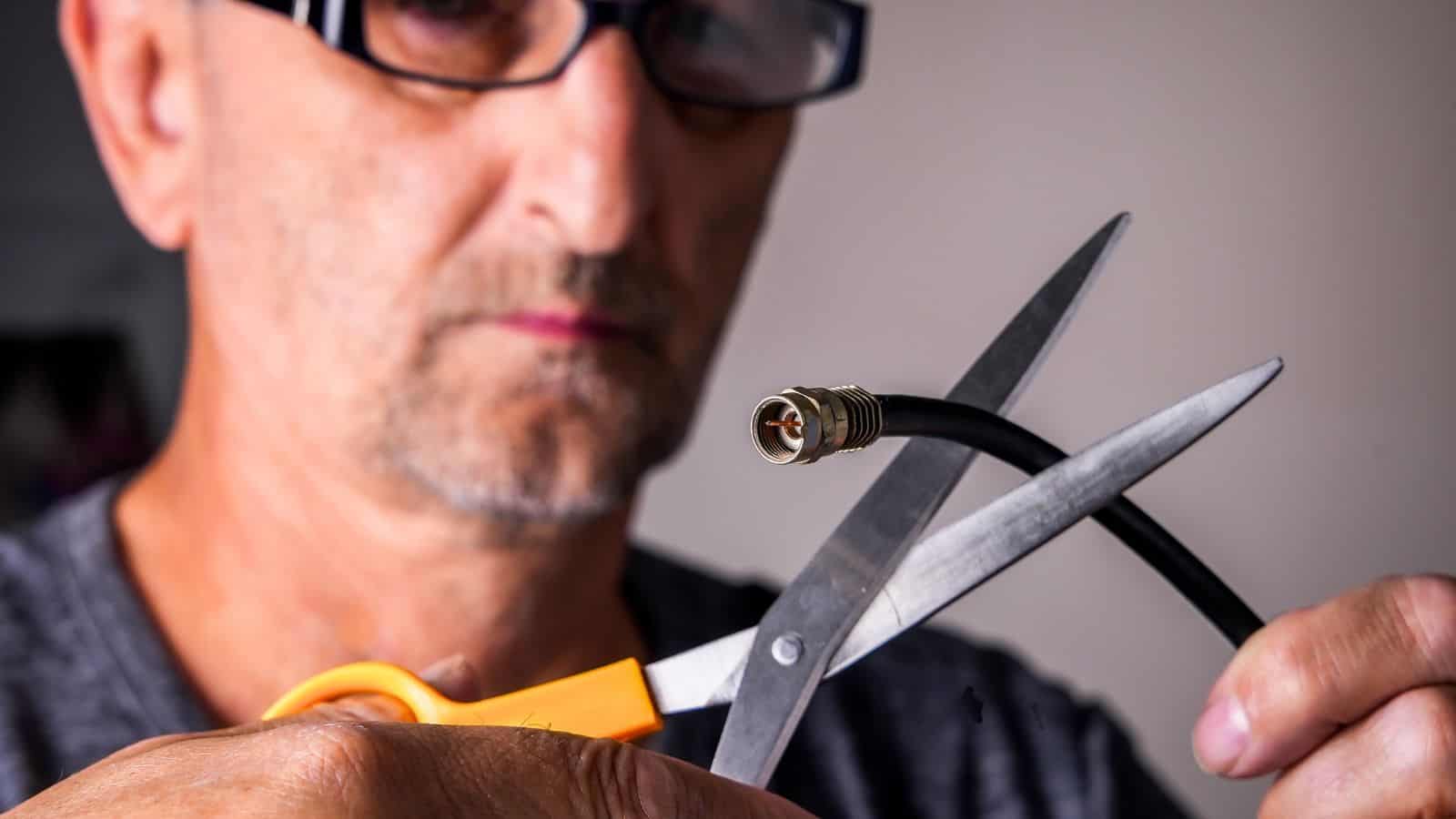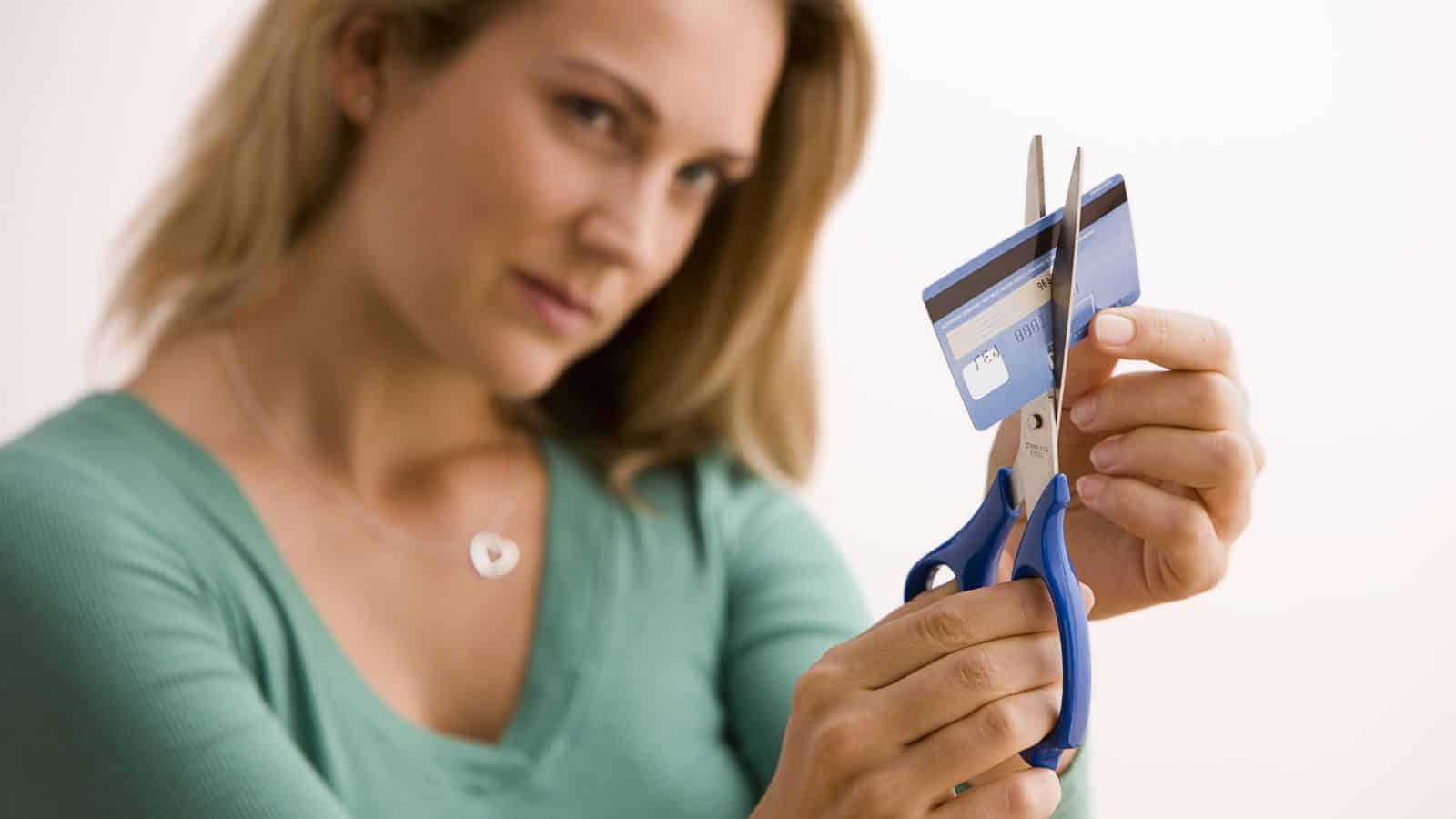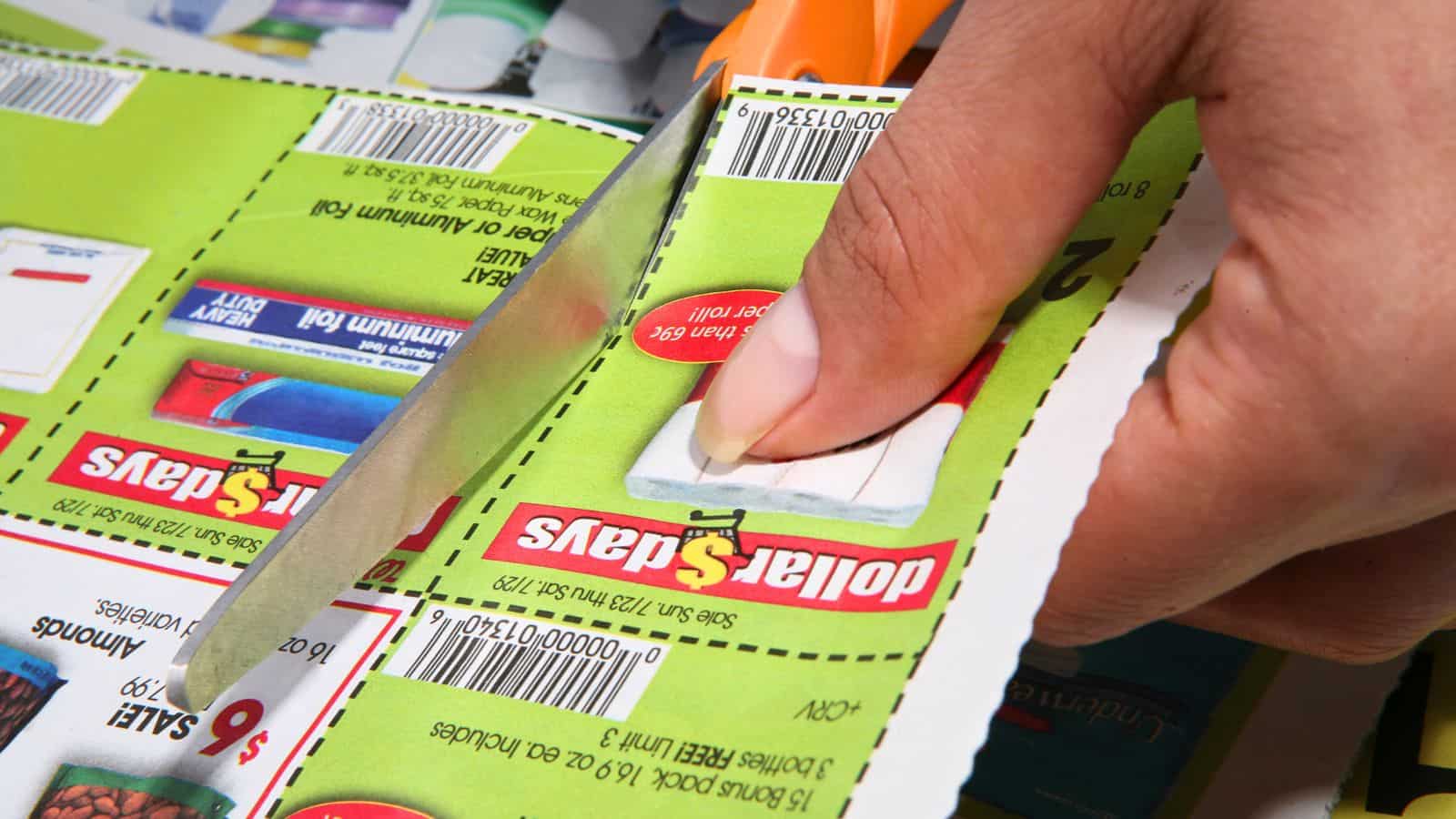Being a cheapskate isn’t something that’s considered good in our society. Stereotypes abound, with the image of many re-using dental floss, or something else extreme. While some of the stereotypes may be true, many are not. In fact, some habits can be really useful to use – especially if you’re deep in debt. These are 13 cheapskate habits you may want to consider using to reach debt freedom and achieve other financial goals.
Table of Contents
Reducing Eating Out

The average American spends over $250 a month dining out. If you’re deep in debt, that’s an easy expense to reduce or even cut.
Do you fear you can’t do it? Start by cutting one meal out a week, then two the following week. In a short time, you’ll claw back cash to apply toward other needs.
Getting Rid Of Cable

Cheapskates hate paying for their TV needs. In an age where there are countless free streaming apps to use, they opt for those to reduce their entertainment costs to next to nothing.
You can watch classic TV shows, movies, and even some local news and sports via free streaming platforms. Instead of paying money to the cable company, throw that money at another goal.
Meal Planning

How often do you throw food in the trash? Reports indicate the average household throws away one-third of the food that comes into their home.
A cheapskate knows that’s like throwing money in the trash. Meal planning is a great way to reduce this waste. Write out want you plan to serve for dinner every night, and use that to purchase groceries. Bonus points if you take leftovers for lunch.
Avoiding Credit Cards

If you’re deep in debt, it’s best to avoid credit cards completely. Using them will only incur more debt and interest.
If you can, use a balance transfer card to reduce your interest to zero percent and eliminate the debt for good.
Making Coffee At Home

Buying coffee out isn’t always viewed favorably. Justifiably so if you’re in debt. Purchase a simple coffee maker, and it will pay for itself within a month.
The reclaimed savings can go toward your debt.
Cut Down On Electricity

Do you have a person in your home that loves to use lights? That can be wasted money you can use towards other things.
Reports show the average household wastes 35 percent of its energy consumption. Turn off the lights and reap the savings.
Comparison Shopping

A good cheapskate loves to compare prices. After all, why would they want to spend more?
If you’re struggling financially, take the same approach. There’s little sense in spending more when you can get something for less. You can even do this when shopping online with coupon apps like Capital One Shopping and Honey to get items for less.
Couponing

Couponing is another habit that tends to be frowned upon, but it’s one that is championed by cheapskates.
If you’re in debt and need to reduce spending, it’s not a habit you should avoid. You don’t have to spend time clipping them out of the paper, either. You can download an app like Ibotta to do the work for you, saving you time and money. It’s a win-win!
Pick Up a Side Hustle

A cheapskate knows that despite their best efforts there’s only so much they can cut. They also know it’s not the only way to eradicate debt.
Another possibility is to get a side hustle. This side gig isn’t for extra spending money. Every last cent they earn goes to the debt, allowing you to pay it off sooner.
Ditching the Car

Do you really want to amplify your debt repayment efforts? Getting rid of your car or greatly reducing how much you use it can be a fantastic way to save money.
Use your bike instead. Even if where you live isn’t terribly biker-friendly, you can save cash and get some exercise.
Using the Library

Cheapskates and frugal people alike love the library. The local library is an excellent resource for getting books, e-books, movies, music, and more.
Combine it with free streaming services, and you won’t be lacking entertainment options.
Make Negotiating an Art

Negotiation isn’t an art only employed by cheapskates. However, it’s one you should use if you’re in debt.
It’s not possible to get a lower price all the time, but it’s worth trying. Any savings stretches your budget further.
Offloading Items You Don’t Use

A true cheapskate sees value in items they no longer use. They see they can either donate it or reuse it. Better yet, they see an opportunity to sell it.
You can sell anything from a used phone to furniture you no longer use. Apply what you earn to your debt, use it to build up your emergency fund, or use it to replace the item.
I Need Money Now!

Are you in a cash rut and need money quickly? Don’t take out a loan. Here are 19 ways you can get cash today to make ends meet.
17 Best Side Hustle Ideas With Great Pay

Side gigs are a terrific way to make ends meet, but there are so many that you may not know where to start. These side hustle ideas offer great pay and flexibility.
7 Steps to Break the Paycheck-to-Paycheck Cycle

Making ends meet is hard on a limited income. However, it is possible to break the cycle and find financial stability. You just need to know where to start.
How to Stop Living Paycheck to Paycheck
10 Proven Ways to Pay Off Debt Faster This Year

Paying off debt doesn’t have to take years upon years to achieve. You can intensify your efforts to kill it quicker. The sooner you become free the sooner you can attack other personal finance goals.
10 Proven Ways to Pay Off Debt Faster this Year
Do Dave Ramsey’s Baby Steps Work?

Love him or hate him, Dave Ramsey has helped millions of people get out of debt. That all starts with his Baby Steps ideology. If you’re struggling financially, his system may work for you.
What Are Dave Ramsey’s 7 Baby Steps? Do They Work?
I’m John Schmoll, a former stockbroker, MBA-grad, published finance writer, and founder of Frugal Rules.
As a veteran of the financial services industry, I’ve worked as a mutual fund administrator, banker, and stockbroker and was Series 7 and 63-licensed, but I left all that behind in 2012 to help people learn how to manage their money.
My goal is to help you gain the knowledge you need to become financially independent with personally-tested financial tools and money-saving solutions.






Leave a Reply